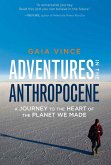There is much we can learn about conservation from native peoples, says Gene Anderson. While the advanced nations of the West have failed to control overfishing, deforestation, soil erosion, pollution, and a host of other environmental problems, many traditional peoples manage their natural resources quite successfully. And if some traditional peoples mismanage the environment - the irrational value some place on rhino horn, for instance, has left this species endangered - the fact remains that most have found ways to introduce sound ecological management into their daily lives. Why have they succeeded while we have failed? In Ecologies of the Heart, Gene Anderson reveals how religion and other folk beliefs help pre-industrial peoples control and protect their resources. Equally important, he offers much insight into why our own environmental policies have failed and what we can do to better manage our resources. He has concluded that all traditional societies that have managed resources well over time have done so in part through religion - by the use of emotionally powerful cultural symbols that reinforce particular resource management strategies. Moreover, he argues that these religious beliefs, while seeming unscientific, if not irrational at first glance, are actually based on long observation of nature. To illustrate this insight, he includes many fascinating portraits of native life. Folk beliefs are often dismissed as irrational superstitions. Yet as Anderson shows, these beliefs do more to protect the environment than modern science does in the West. Full of insights, Ecologies of the Heart mixes anthropology with ecology and psychology, traditional myth and folklore withinformed discussions of conservation efforts in industrial society, to reveal a strikingly new approach to our current environmental crises.








